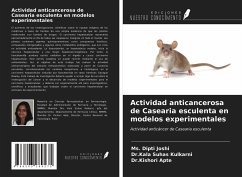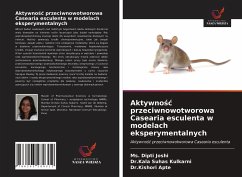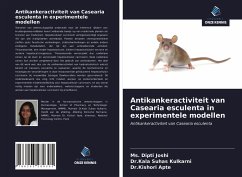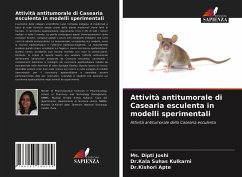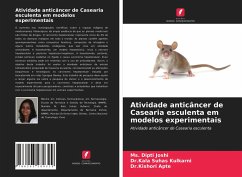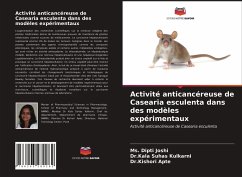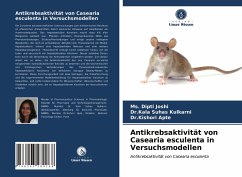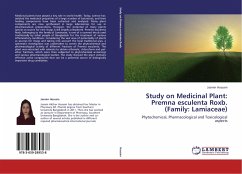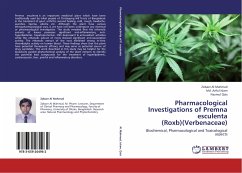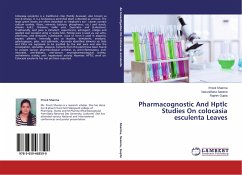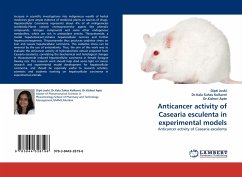
Anticancer activity of Casearia esculenta in experimental models
Anticancer activity of Casearia esculenta
Versandkostenfrei!
Versandfertig in 6-10 Tagen
32,99 €
inkl. MwSt.

PAYBACK Punkte
16 °P sammeln!
Increase in scientific investigations into indigenious wealth of herbal medicines gives ample evidence of medicinal plants as sources of drugs. Hepatocellular Carcinoma represents about 4% of all malignancies worldwide.Plants contain chemopreventive agents like phenolic compounds, nitrogen compounds and some other endogenous metabolites, which are rich in antioxidant activity. Thioacetamide, a model hepatotoxicant,initiates hepatocellular necrosis and further hepatocarcinogenesis. Thioacetamide thus produces oxidative stress on liver and causes hepatocellular carcinoma. This oxidative stress c...
Increase in scientific investigations into indigenious wealth of herbal medicines gives ample evidence of medicinal plants as sources of drugs. Hepatocellular Carcinoma represents about 4% of all malignancies worldwide.Plants contain chemopreventive agents like phenolic compounds, nitrogen compounds and some other endogenous metabolites, which are rich in antioxidant activity. Thioacetamide, a model hepatotoxicant,initiates hepatocellular necrosis and further hepatocarcinogenesis. Thioacetamide thus produces oxidative stress on liver and causes hepatocellular carcinoma. This oxidative stress can be reversed by the use of antioxidants. Thus, the aim of this work was to evaluate the anticancer activity of hydroalcoholic extract prepared from Casearia esculenta, correlating the biochemical and histological changes in thioacetamide induced hepatocellular carcinoma in female Sprague Dawley rats. This research work should help shed some light on cancer research and experimental model development for hepatocellular carcinoma, and should be especially useful to research scholars, scientists and students working on hepatocellular carcinoma in experimental animals.



